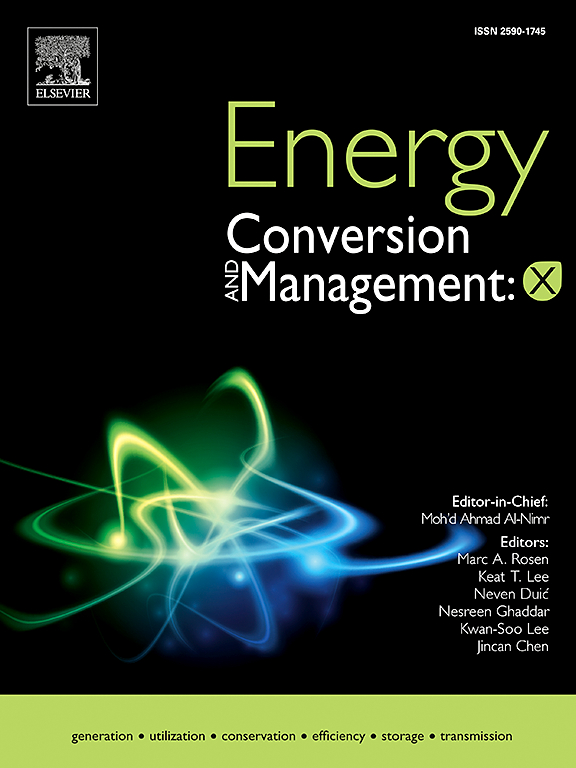DC bus-controlled grid-forming inverters for enhanced stability and fuel efficiency in hybrid microgrids
IF 7.6
Q1 ENERGY & FUELS
引用次数: 0
Abstract
Diesel generators (DGs) have long provided inertia and stability in microgrids but face critical limitations including poor fuel efficiency, slow frequency recovery, and high carbon emissions. This paper proposes a DC Bus Controller for grid-forming inverters (GFMs) that leverages DC voltage dynamics as an active energy buffer to enhance stability and efficiency in diesel–renewable hybrid microgrids. Unlike droop or virtual synchronous generator (VSG) schemes, the controller directly translates DC voltage deviations into adaptive active power references, enabling sub-cycle response and seamless DG–GFM coordination. Comprehensive analysis and hardware-in-the-loop (HIL) validation confirm its effectiveness. Results show a 70 % increase in damping ratios, phase margin of 63°, RoCoF mitigation to –0.5 Hz/s, and black start capability within 1.3 s. The strategy also achieves fault recovery in 0.31 s and 57 % fuel savings under 100 % inverter-based operation. By integrating scalability, circulating current suppression, and fuel optimization, the proposed controller demonstrates a field-ready pathway toward diesel-free, inverter-dominant microgrids.
用于增强混合微电网稳定性和燃油效率的直流母线控制并网逆变器
柴油发电机(dg)长期以来为微电网提供了惯性和稳定性,但面临着燃油效率低、频率恢复缓慢和碳排放高等关键限制。本文提出了一种用于并网逆变器(GFMs)的直流总线控制器,该控制器利用直流电压动态作为有源能量缓冲来提高柴油-可再生混合微电网的稳定性和效率。与下垂或虚拟同步发电机(VSG)方案不同,控制器直接将直流电压偏差转换为自适应有功功率参考,实现子周期响应和无缝DG-GFM协调。综合分析和硬件在环(HIL)验证证实了其有效性。结果表明,阻尼比提高70%,相位裕度为63°,RoCoF降低至-0.5 Hz/s,黑启动能力在1.3 s内。该策略还可以在0.31秒内实现故障恢复,并且在100%使用逆变器的情况下节省57%的燃料。通过集成可扩展性、循环电流抑制和燃料优化,所提出的控制器展示了通往无柴油、逆变器主导的微电网的现场准备途径。
本文章由计算机程序翻译,如有差异,请以英文原文为准。
求助全文
约1分钟内获得全文
求助全文
来源期刊

Energy Conversion and Management-X
Multiple-
CiteScore
8.80
自引率
3.20%
发文量
180
审稿时长
58 days
期刊介绍:
Energy Conversion and Management: X is the open access extension of the reputable journal Energy Conversion and Management, serving as a platform for interdisciplinary research on a wide array of critical energy subjects. The journal is dedicated to publishing original contributions and in-depth technical review articles that present groundbreaking research on topics spanning energy generation, utilization, conversion, storage, transmission, conservation, management, and sustainability.
The scope of Energy Conversion and Management: X encompasses various forms of energy, including mechanical, thermal, nuclear, chemical, electromagnetic, magnetic, and electric energy. It addresses all known energy resources, highlighting both conventional sources like fossil fuels and nuclear power, as well as renewable resources such as solar, biomass, hydro, wind, geothermal, and ocean energy.
 求助内容:
求助内容: 应助结果提醒方式:
应助结果提醒方式:


